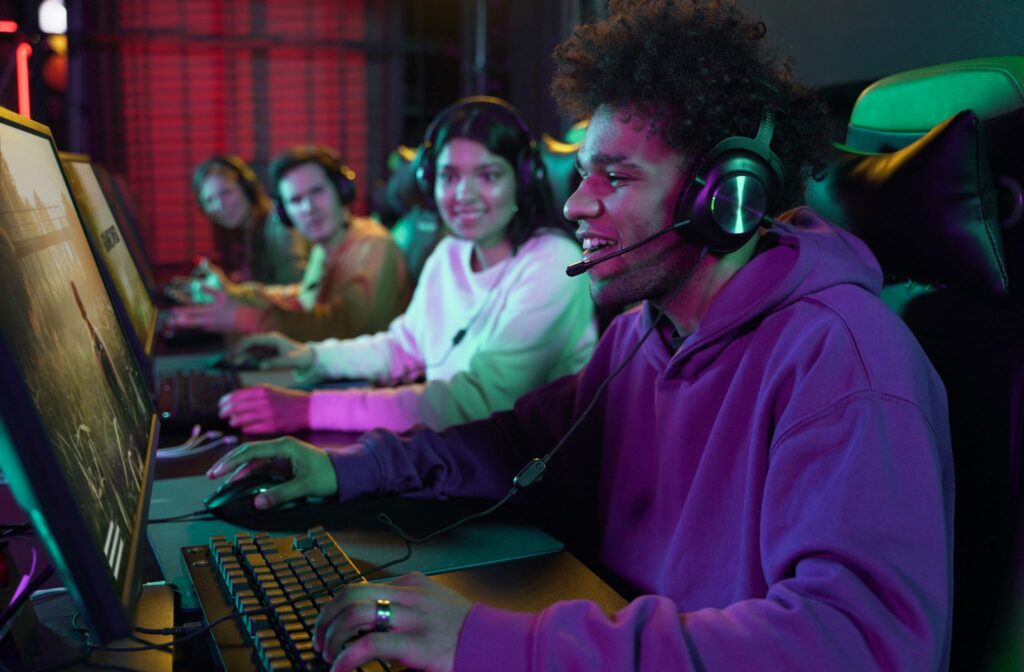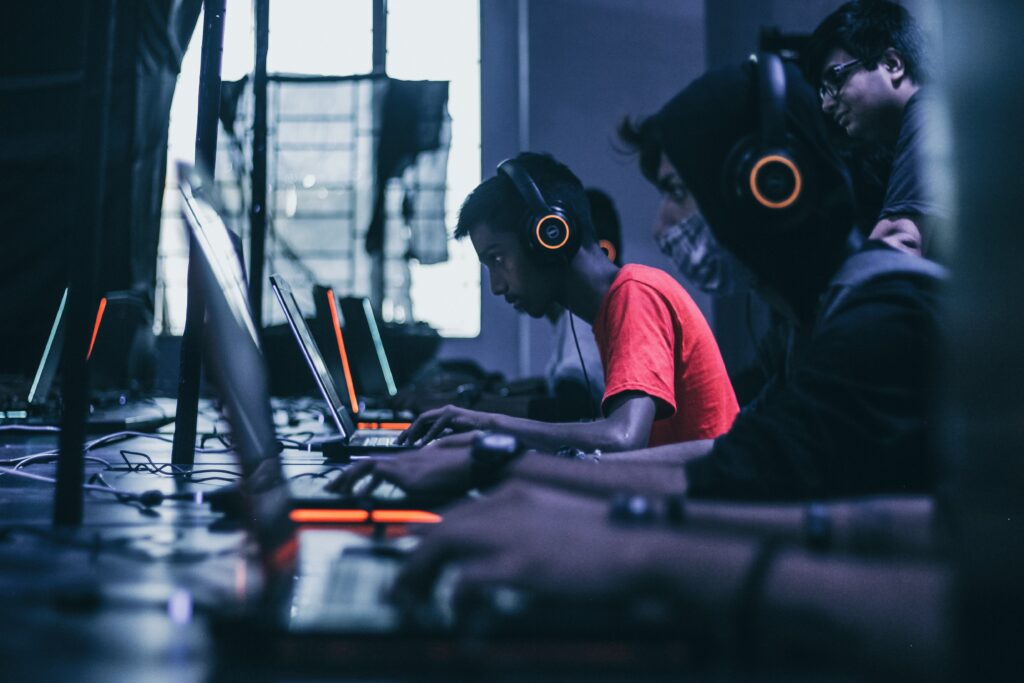The Ultimate Game: Lessons from Mobilizing Gamers in Brazil’s Elections
October 24, 2023
Fostering Inclusivity, Combating Extremism, and Amplifying Democratic Values in the Thriving World of Online Gaming Communities

Today, digital games are responsible for forming true communities with characteristics that go beyond entertainment. Gaming communities have become environments for the expression of ideas — complex social spaces where young people also discuss politics, culture, and society.
These online gaming communities often have greater influence on their users than users’ own family and friends. In Brazil, young people are developing political awareness through interaction with online friend networks and content produced by influencers. They are interested in politics — but not institutional and party politics. Thus we are seeing that through these supposedly non-politicized channels, young people from all sectors of society are forming worldviews and political preferences, and even affiliating themselves with extremist ideologies.
According to data from the Game Brazil Survey (2023), 70.1% of Brazilians with access to electronic devices have the habit of playing digital games and spend two and a half hours a day playing — slightly above the global average. Contrary to popular belief, men and women, as well as Black and white people, are represented in equal proportions, and users bridge all social classes. Even indigenous people living in their traditional communities participate. In 2020, Brazil hosted the first Indigenous Free Fire Cup, with 48 ethnicities represented.
What’s Wrong? Unveiling the Dynamics of Radicalization in Gaming Communities

When we examine the dynamics of radicalization, the games themselves are not the problem. The problem lies in how socialization functions within social spaces related to games, such as forums, chat rooms, Discord servers, and in-game chats. In conversations and comments adjacent to the gaming experience, young people are being influenced and politically educated.
Globally, these spaces have been used to promote radical ideologies and influence offline violent actions. Online games are strongly dominated by conservative and extremist voices that can operate below the radar because platforms like Discord, Twitch, and Reddit are less familiar to non-gamers and are not closely monitored like more established social media platforms.
The first formulators of the current alt-right (“alternative right”) came from digital gaming communities. In gaming forums, extremists have been conducting coordinated attacks on institutions, democratic principles, and activists for nearly 10 years, operating dominantly where progressive voices are largely underrepresented.
Gaming communities have become a fertile ground for hate speech that not only damages the online experience and mental health of Black players, women, and LGBTQIAPN+ individuals but also helps shape the worldview of many, thus contributing to the advancement of racist, misogynist, and LGBT-phobic norms and behaviors offline.
The progressive field is far behind in this competition. But there is a significant opportunity today to occupy gaming social spaces with positive social action, equipping civil society organizations and trusted messengers from gaming communities to act in defense and promotion of democracy.
What Works? Insights into Mobilizing Progressive Action within Online Gaming Networks
From our work during the lead-up to the presidential elections in Brazil last year, we’ve identified three essential tactics:
- Context-Specific Interventions: In the months leading up to the elections, we observed that female voters were inclined to be progressive but often believed their votes wouldn’t make a difference. To promote voting among female gamers, who represent 50% of the Brazilian gaming community, we focused on Twitch, a hugely popular streaming platform worldwide. There, we created and live-streamed a 4-episode RPG (role-playing game) played by 6 influential female gamers from diverse backgrounds, including Black, indigenous, and trans.
The game revolved around female characters coming together to defeat a common enemy, a group of villains who carried the personality traits of fascist leaders: authoritarian, dictatorial, and disrespectful of minorities. The villains’ strongest weapon? Their ability to spread disinformation.
Our game was watched by 60,000 people simultaneously on Twitch, while others watched through the social media channels of the influencers. Female gamers’ response was immensely positive. Evidence shows that the combined effort of the civic sector in Brazil led to an unprecedented lower abstention rate in the second round of voting, with women playing a decisive role in Lula’s victory. - Trusted Messengers: To encourage gaming influencers to engage politically, we developed a toolkit with practical tips on discussing politics without taking a partisan stance. Influencers were trained to deliver a message in their own authentic voice emphasizing the value of voting.
The main goal was not to provide standardized talking points, but rather to equip each influencer to authentically step up to change the game. - Audience-centric Approach: We established a content creation hub on Discord, engaging gaming influencers and creatives to craft and share gamer-related content that resonated with their audiences. This approach was instrumental in breaking through the noise and broadening the conversation.
One key example was a piece of content that went viral a few days before the second round of the elections. Creators tapped into the fact that Star Wars is big in gamer communities and created a visual asset saying “I’m a Jedi and I support Lula.” Mark Hamill, who played Luke Skywalker, picked it up and tweeted it. And then Lula himself shared Hamill’s post. All of a sudden, it was everywhere, even on traditional media channels.
Through social listening monitoring, we were able to see that one piece of content could burst out of the progressive bubble and start to be part of the conversation not just for left-leaning groups, but also for groups that were not undecided — it even started trending among conservative gamers.
What’s Next? Paving the Way for Inclusive and Democratic Values in the Gaming Sphere

It’s clear that gaming communities are not only influential but also adaptable and open to change. And while the battle for the hearts and minds of gamers is ongoing, it’s one we cannot afford to lose. The gaming universe is a mirror reflecting the broader challenges of our interconnected world. As progressive voices, it is our responsibility to lead by example, promote inclusive and democratic values, and stand up against hatred and intolerance.
As Purpose continues our journey with the Gamer Lab, membership in the Extremism and Gaming Research Network will bolster our efforts. We look to a future where gaming fosters inclusivity, inspires creativity, and amplifies the principles of democracy.
Partner with us!
Interested in learning more about the Gamer Lab? Get in touch here!
for Equity & Evidence